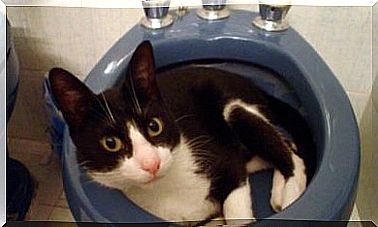Animals Love Music Too

Our pets, as an integral part of the family, love what we love, both in terms of activity and in terms of taste. Or at least that’s what most of us think. Surely you have surprised, at least once, your cat dazed in front of the television, or you have found your dog blissfully asleep, while a pleasant melody was playing in the background.
What we don’t really know is how our animal friends decode the acoustic and visual signals they receive and what they mean to them. With the aim of demonstrating that animals also appreciate music just like humans, numerous studies have been conducted over the years and even new disciplines such as zoomusicology have been born.
Animals and music: a love demonstrated by research

-A time ago, Galaxie – the Canadian national radio network of music channels – conducted a study that pets were music lovers. During the study, it was observed how dogs and cats reacted differently depending on the song they were listening to and that they even had musical preferences. The results of the study also showed that when a pet was left alone at home, it preferred to listen to soft background music rather than absolute silence.
Experts from the University of Queens School of Psychology have concluded that classical music helps dogs relax, reduces their barking and also increases the time they spend resting. If, on the other hand, they are played with heavy metal music, the intensity of their agitation increases, as does the barking, which becomes interminable. Any similarity with the effects that music causes on human beings does not seem to be a mere coincidence.
-More than a hundred years ago an experiment was conducted at the Bronx Zoo (New York), the results of which were published in The New York Times newspaper, in an article entitled: “The Effects of Music on Zoo Animals” . The article described the reactions of the different species to the musical stimuli to which they were subjected. It was reported, for example, that the orangutans liked Caruso’s interpretations and that they moved in time with the swing. In return, the coyotes and wolves appeared frightened and agitated.
-Hundred years later, a psychologist from the University of Wisconsin carried out a study on primates and confirmed that monkeys reacted to sounds based on the intensity of the latter: a certain type of music was able to relax them, while others altered the their behavior.
-According to research from Queen’s University in Belfast, the favorite music of cats and dogs is classical. Strengthened by this conviction, an American musician, Felix Pando, recorded a disc in which he adapted pieces of the greats of classical music for these animals: in fact, he created relaxing melodies that are interpreted by instruments whose sounds and frequencies are particularly welcome to our four-legged friends. The melodies on this record also include some special sound effects, such as birdsong, cats meow or dogs barking.
-Other studies have shown that certain cows increased their milk production if they listened to Vivaldi’s “The Four Seasons”, or that pigs fattened faster with Mozart in the background. The researchers concluded the study by stating that what caused these effects was, in these cases, the rhythm and not the melody.
To each his own music

The zoomusicology also -Call zoosemiotica- is a fusion of zoology and musicology: it is, that is, a discipline that studies the music on animals, how they react to sounds and effects that music creates in them.
Psychologist Charles Snowdon discovered that the best way to study the effect of music on animals was to create one for each species, since each species is able to perceive frequencies different from those we perceive.
So it was that a group of specialists created new music by mixing different rhythms, at the same frequency that cats use to communicate with each other, with songs that have a rhythm similar to the purr of a cat. Taking 47 cats as a sample, it was concluded that these animals showed a clear preference for music specially composed for them: every time they played these melodies, the cats rubbed their heads against the speakers, while instead they remained impassive and apathetic when playing the traditional classical music that humans appreciate so much.
Ultimately, we can say that even if our musical tastes and those of our pets do not coincide, at least in one thing we agree: the pleasure that listening to a good piece provokes … to each according to their own parameters!









